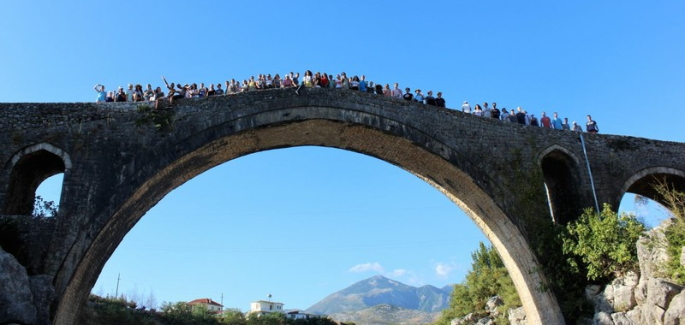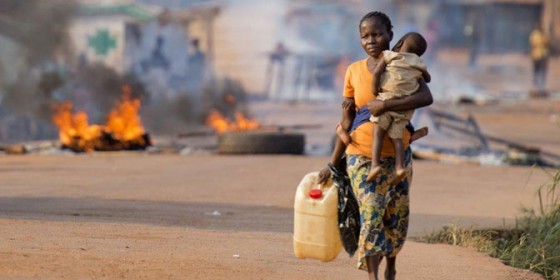“Jesus crucified and forsaken is the model priest!”
22/04/2006
![]()
 Joy for having “experienced the family spirit,” “shared even our difficulties,” “prayed in profound unity” and “for having participated in a great moment of Church life”: these were some of the impressions gathered there and then, from priests, permanent deacons and seminarians as their conference entitled “The Church today: the spirituality of communion and dialogue,” ended. It was held at Castel Gandolfo (Rome) from April 19 to 21, attended by 1,000 participants coming from 52 different countries. Among the participants were also members of other Churches.
Joy for having “experienced the family spirit,” “shared even our difficulties,” “prayed in profound unity” and “for having participated in a great moment of Church life”: these were some of the impressions gathered there and then, from priests, permanent deacons and seminarians as their conference entitled “The Church today: the spirituality of communion and dialogue,” ended. It was held at Castel Gandolfo (Rome) from April 19 to 21, attended by 1,000 participants coming from 52 different countries. Among the participants were also members of other Churches.
The conference started with an in-depth reflection on “The portrait of the priest and the deacon today: actual experience and challenges.” Experiences from different parts of the world and the talks offered by experts during this first part of the conference highlighted the challenges faced by the Church today and, consequently, by priests as well – such as the credibility crisis and lack of impact, social and cultural fragmentation, individualism and overwork. Furthermore, there is also the struggle against poverty, conflicts and injustice. However, it was observed that right in the midst of these difficulties, signs of hope can be gleaned, such as a widespread “thirst for God” which must be responded to with adequate preparation, the flourishing of small ecclesial communities and the contribution of the new charisms.
The key idea of the Conference was put into light by Chiara Lubich’s message: “Jesus crucified and forsaken is the One who opened up the way for humanity towards universal brotherhood… And since men and women, because of Jesus crucified and forsaken, were able to establish their rapport with God again, He is the bond of unity also among people… This is why we speak of him: he is the model priest! My wish, accompanied with my prayers, is that each of you may find your model in him, so that the Church today may be enriched by priests-Christ, priests-victims for humanity; authentically Christ, ready to give their lives for everyone.”
The second part of the conference dealt with the theme on the Church as communion and the absolute need for a spirituality of communion. Giuseppe Maria Zanghì, co-director of the Focolare Movement’s Center of Studies spoke about the “epochal transition from a prevalently individual vision of the human person to one which opens up the individual’s interior life towards communion with every person.” Fr. Silvano Cola, director of the Focolare’s Priests Movement, recounted his meeting with the spirituality of unity, underscoring three fundamental dimensions for the life of Christians and priests today: “discovering that God is Love means ‘everything’ to the Christian experience; being able to see all men and women as children of God; putting at the center of one’s life Jesus Crucified, who, even at the moment when he felt himself separated from the Father, entrusted himself to the Father out of love.”
The evening prayer of the first day was accompanied by the hymn Akathistos dedicated to Our Lady, offered by a choir of Orthodox priests and seminarians.
 The morning session of the second day, April 20, constituted the nucleus of the conference. Unity, communion and reciprocity – it was said – are but a utopia if they are not rooted in a love whose measure is Jesus’ radical giving of Himself on the cross. Among the speakers were two parish priests whose efforts proved to be very fruitful in environments that were not very open to church life, and an Italian priest who has dedicated his life to the “meninos da rua” (streetchildren).
The morning session of the second day, April 20, constituted the nucleus of the conference. Unity, communion and reciprocity – it was said – are but a utopia if they are not rooted in a love whose measure is Jesus’ radical giving of Himself on the cross. Among the speakers were two parish priests whose efforts proved to be very fruitful in environments that were not very open to church life, and an Italian priest who has dedicated his life to the “meninos da rua” (streetchildren).
The concelebrated Mass was presided over by Bishop Gian Carlo Bregantini of Locri (region of Calabria, Italy), who is a living witness of evangelical courage in the struggle against organized crime. In the afternoon, Msgr. Aldo Giordano, Secretary-General of the Council of European Bishops’ Conferences, proposed stimulating points for reflection with his theme: “For a pastoral work characterized by communion.”
Some experiences shared offered examples of pastoral work animated by the missionary spirit. Included among these experiences was that of priests and lay people from the St. John of the Cross Parish in Rome, where the vitality and methods used by the new ecclesial Movements harmoniously blend with parish structures. Another experience was that of aid work in favor of Bosnia, being carried out by a youth center in Germany – an endeavour which has turned out to be an experience of evangelization, with positive effects felt in 45 countries. Lastly, there was also the experience of a young Brasilian priest who was able to develop over 2,000 small communities which have revitalized Church and social life in Ponta Grossa with the evangelical art of loving.
The morning session of April 21 was dedicated to the theme of culture and dialogue, with the reflection offered by Fr. Pasquale Foresi, first priest focolarino on “A new school of thinking,” followed by Vera Araùjo and Carlos Clarià, members of the Focolare Movement’s General Council, on “Soul of the world: new horizons for mission today.”
The culminating point of the Conference was an intense moment of prayer, during which the participants took upon themselves the commitment (as re-proposed on behalf of Chiara Lubich by Natalia Dallapiccola, her first companion) – to conform their lives to Jesus crucified to be able to face the many ‘countenances’ of suffering in the world today and “drink deep of the waters of tribulation from many hearts that are nearby and … from many far away.” Giving the final greeting, Fr. Silvano Cola – one of the promoters of the conference – said: “As Jesus did 2000 years ago, he seems to be telling us today, “Go out into the whole world and preach the Gospel put into life”!
For further information: chiesaoggi.focolare.org


 Italiano
Italiano Español
Español Français
Français Português
Português

